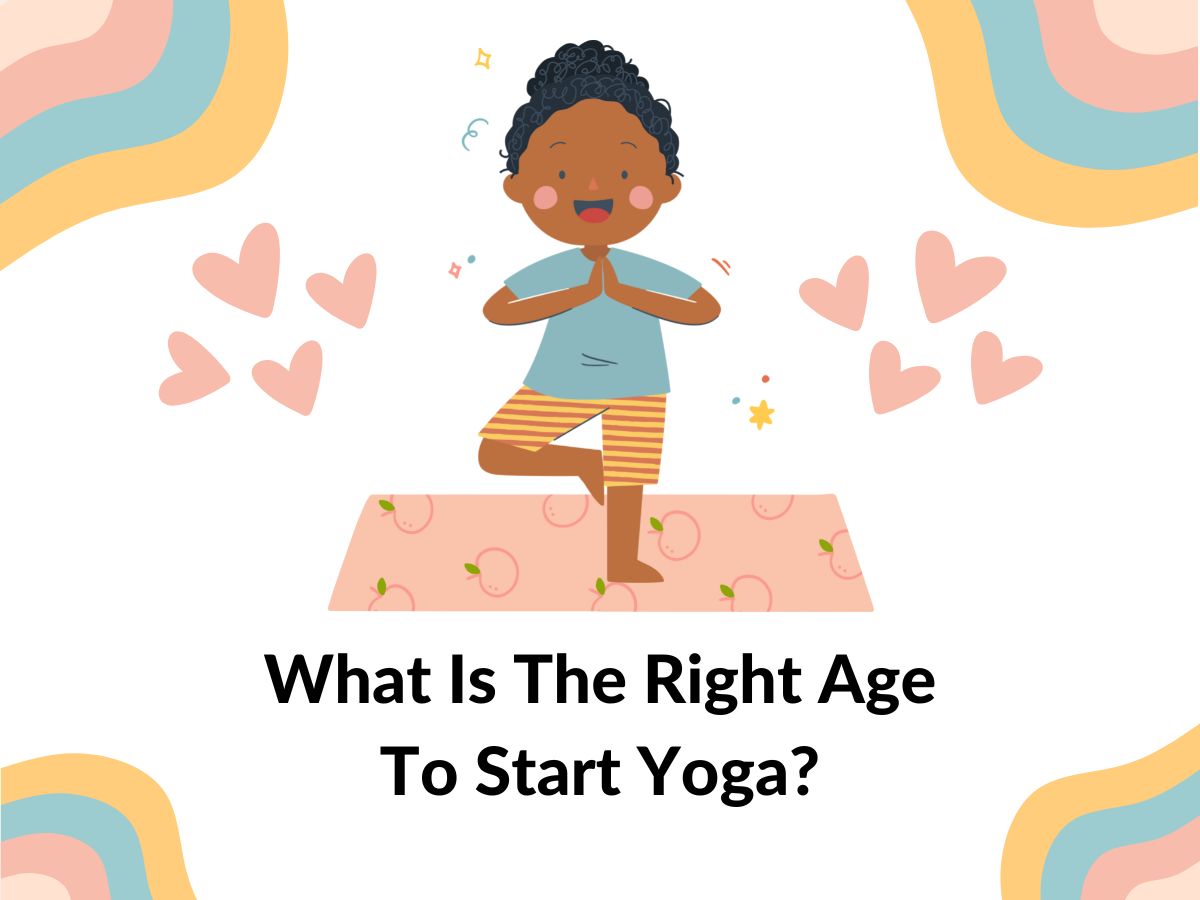What Is The Right Age To Start Yoga?

Yoga encompasses not only the physical but also the mental and spiritual aspects of a person's well-being, unlike other activities just linked with physical health.
You can identify the difference between a yoga practitioner and a non-practitioner by comparing them. Those who practice yoga have more stamina, an enhanced immune system, enhanced focus, and the ability to fight off infections.
Yoga asanas help strengthen stamina, stabilize blood flow, improve breathing, and alleviate muscular soreness. In addition, yoga is likely beneficial for practically all health issues.
Therefore, one must incorporate yoga into their everyday regimen. But what is the appropriate age to begin yoga? According to experts, the optimal age to begin practicing yoga is between 12 and 13.
Small children practice shishuasana, Pawan muktasana, and a few more asanas daily, whether they know it or not. However, the appropriate age to begin yoga is 13 years old. This is since the child undergoes several changes throughout this period, including mental and hormonal changes."
There is no minimum age requirement to begin yoga. Yoga exercises may be performed at any age. It is advised that elderly individuals should not begin their workout regimen with rigorous activities.
When Should Kids Start Yoga?
It is well known that yoga is beneficial for adults. And millions worldwide frequently engage in this activity. But is yoga exclusive to adults? No!
Yoga practice should ideally begin at a young age so that children may develop into well-rounded individuals and do not require yoga to address their body and mental concerns later in life. I frequently wonder why we wait so long to get started.
Yoga is a gift to humanity and should be practiced from a young age to receive the benefits of this ancient discipline for a lifetime. There are significant advantages to beginning yoga at a young age. The age of magic is eight.
It is generally known that individuals face daily stress in many forms. However, children nowadays are as anxious as adults.
They must keep up with the increasing competitiveness in schools and universities, dealing with peer pressure and the challenging stage of puberty, remain interested in extracurricular activities, and satisfy the expectations of their parents and professors. This is a lot for a child to handle.
Everyone should be aware of the benefits of yoga for children. The practice significantly impacts the body and its supporting systems, such as the neurological, respiratory, and digestive systems.
Yoga affects the emotions and conduct of children; it has a beneficial effect on the state of mind and fosters creativity.
Like preparing the earth before planting seeds, one must also prepare the mind. The mind undergoes several phases. While many feel that children are difficult to persuade, some are surprisingly responsive.
Yoga can aid in the transformation of 'consciousness' The quality of consciousness is positive when one is alert and responsive and negative when one is lost in their thoughts, unable to concentrate, absorb, or remember information, or has a bad memory.
At what age should children begin yoga? At the age of eight, Indian children customarily undergo the thread ritual (upanayana), which signifies their entry into religious traditions. Children are taught sun salutations, Nadi shodhana pranayama, and the Gayatri mantra at this age.
This age marks the conclusion of childhood. Even contemporary experts acknowledge that this is an important developmental milestone for adolescents' physiological and psychological maturation. Among the evidence supporting this claim are:
- At age 8, the number of air sacs in the lungs stabilizes. After age 8, they only increase in size, not in quantity. This is the optimal moment to incorporate pranayama into a child's daily practice. This will assist the cardiovascular and respiratory systems to maintain high resistance and endurance levels.
- By age 8, the immune system's health is established. The sun salutations and Nadi shodhana pranayama promote the lifelong development of immunological responses.
- The pineal gland is crucial for maintaining a child's heightened level of consciousness. Children who practice yoga during their eighth year have a delay in puberty, allowing them to remain children for a bit longer. This delay will prepare the youngster for puberty's physiological, psychological, and emotional assault. Adults who reach puberty a bit later are also more perceptive, sensitive, and clever than those who reach puberty rapidly.
- Psychologists think children's ability to comprehend concepts and ideas that serve as the foundation for continuous technical and moral instruction begins around age eight. Before this, the child's life is dominated by imagination and play.
- At this age, spiritual growth begins. This is an ideal moment to start children into karma yoga, where they begin to assist with modest home chores, acquire responsibility, learn morality, and are held accountable. This will assist them in developing their spiritual path.
Yoga improves children's development and growth. I do not imply that we should be preoccupied with our children doing yoga and begin before they can walk. However, when the time is appropriate, I advise you to locate a yoga instructor who can assist your kid in incorporating yoga into their life. It is a gift that empowers a youngster.
Swami Satyananda Saraswati stated, "The fate of the entire planet rests in the hands of children." If you wish to see the silver lining on the horizon, it is children who must be spiritualized, not you and I."
If you are looking for the best yoga teacher near you, then Finndit is a platform that will give you accurate information about the best yoga teachers and classes in your city.
Read Also -
What Are The Things To Keep In Mind Before Starting Yoga?
Should We Do Yoga Every Day or Once A Week?
What Are The 12 Benefits Of Doing Yoga?
How To Reduce Double Chin By Yoga?
